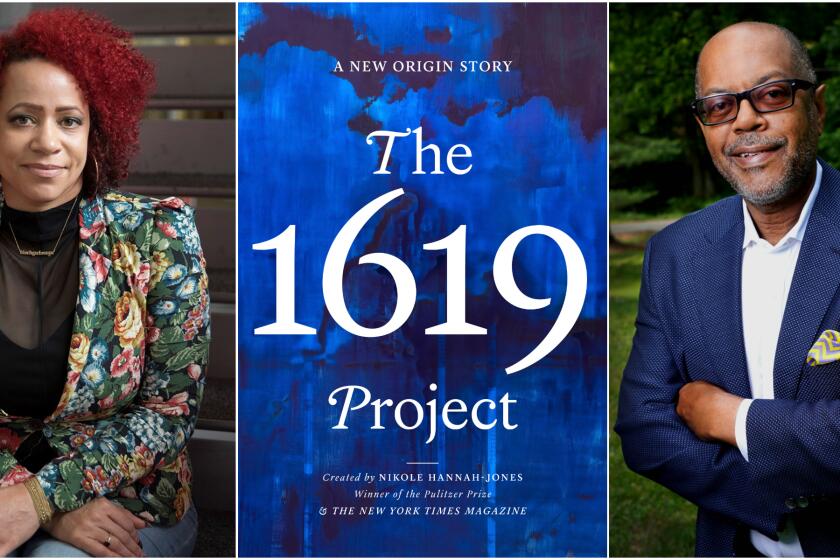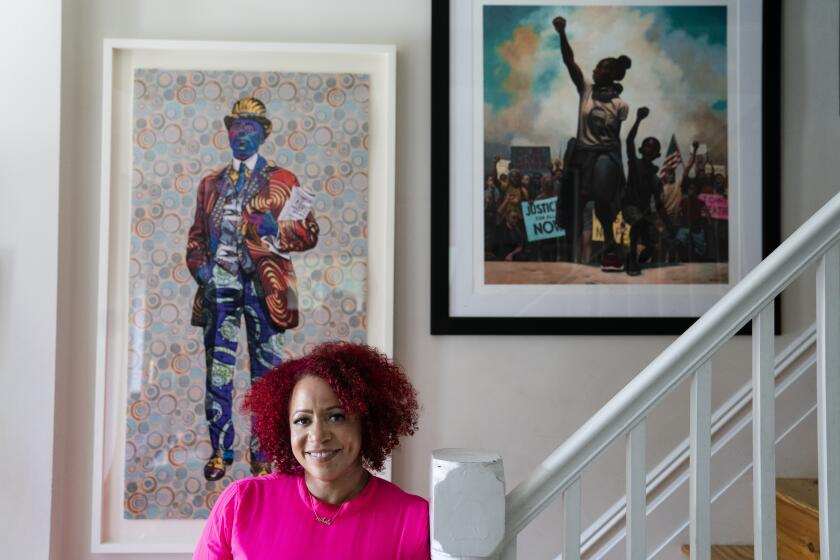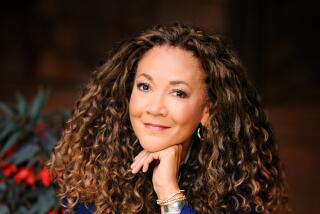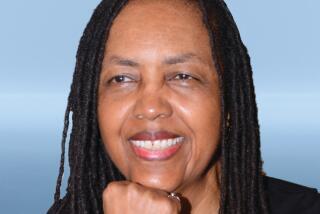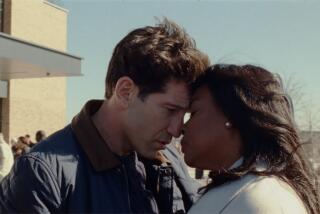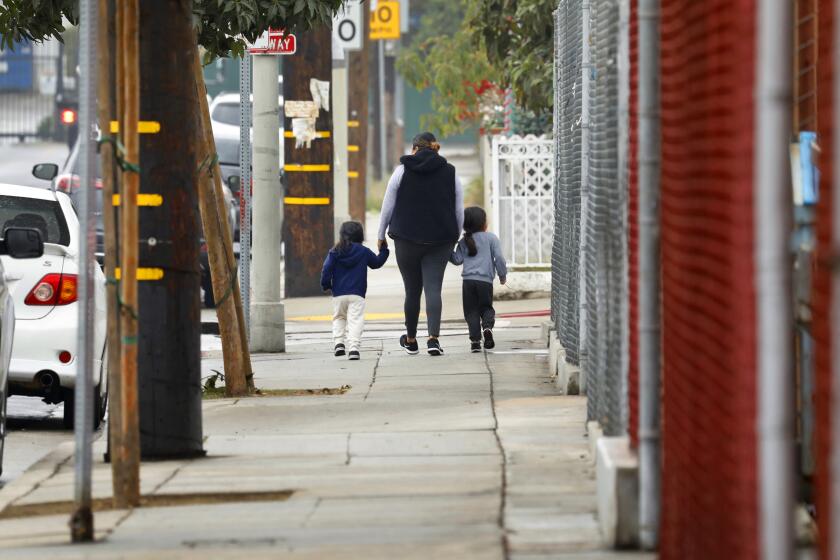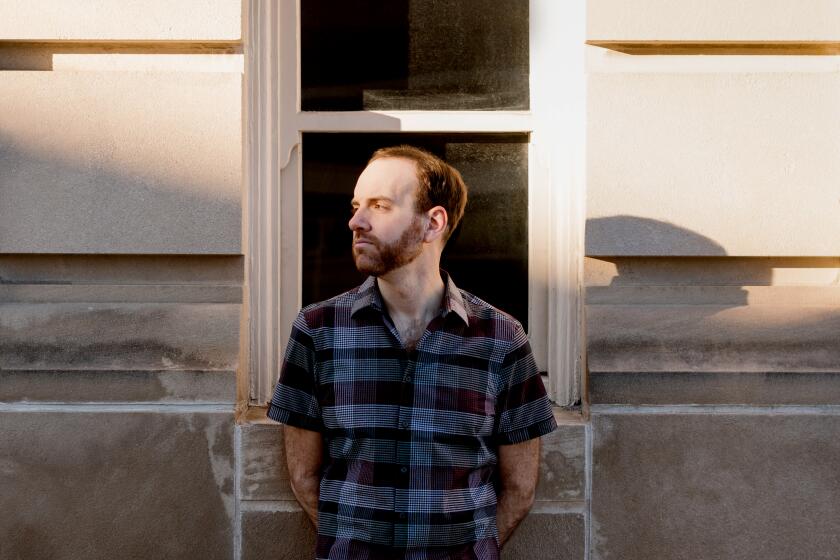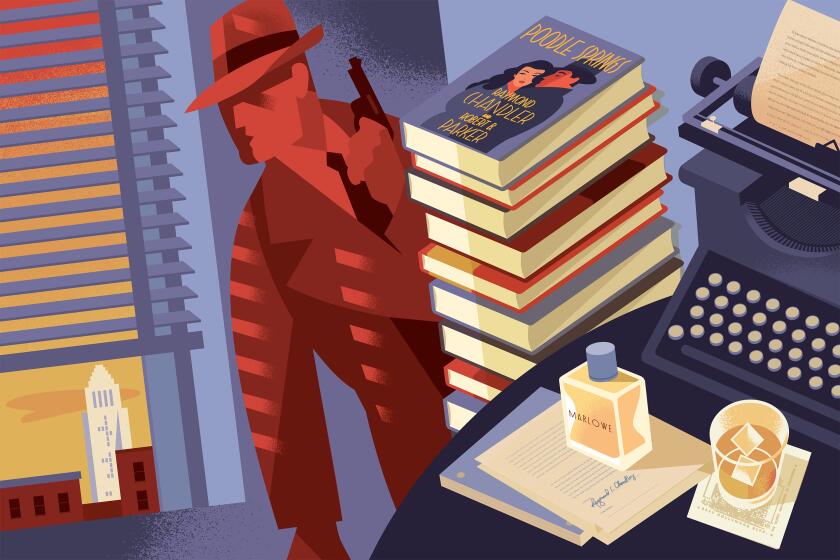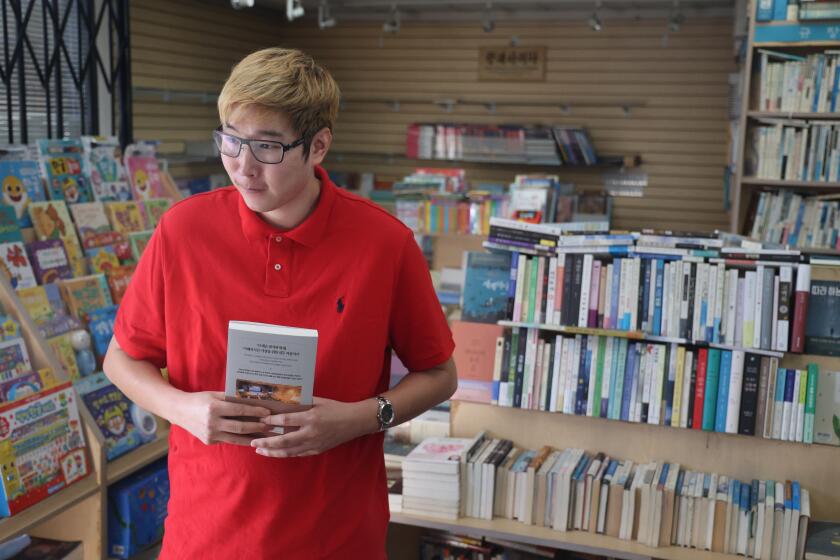Nikole Hannah-Jones dives into the origins and language of ‘The 1619 Project’
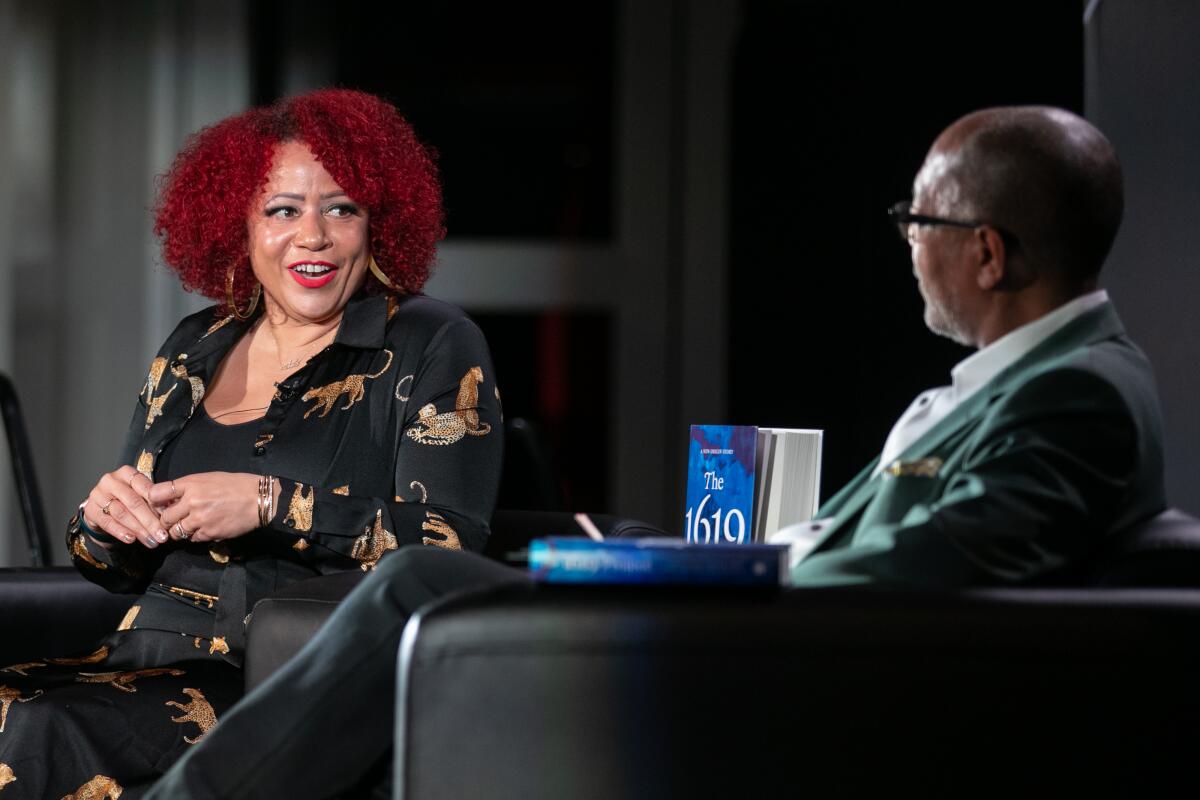
When Nikole Hannah-Jones’ “The 1619 Project: A New Origin Story” was greenlighted, she didn’t want to mince words in her sweeping and eye-opening exploration of slavery and its legacy in America today.
The New York Times Magazine investigative journalist and her collaborators created a style guide to ensure they would be mindful of the language used: Human beings would be referred to not as “slaves” but as “enslaved persons”; “Blacks” would never be a collective noun; and “plantations,” popular settings for modern-day weddings and photo shoots, would be called what they were: “slave labor camps.”
“When you think about the image that the word ‘plantation’ evokes, it’s ‘Gone With the Wind,’ it’s bucolic, it’s mint juleps and it’s these beautiful dresses,” said Hannah-Jones, speaking Tuesday night at the California African American Museum. “And undergirding all of that is torture, and the threat of torture.”
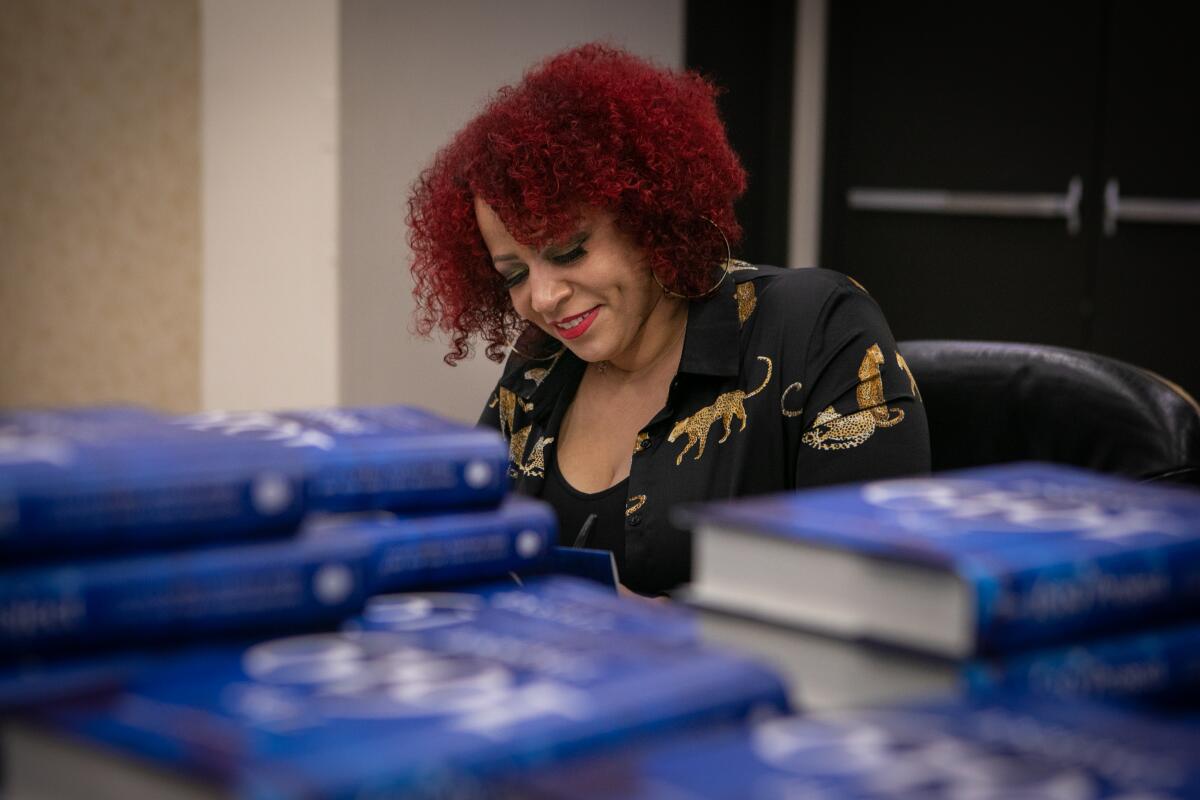
For the last stop of her “1619” book tour, Hannah-Jones joined Los Angeles Times Executive Editor Kevin Merida for a wide-ranging conversation about her groundbreaking Pulitzer Prize-winning series turned anthology, its origin story and, among other things, its intentional language. Special guest authors Nafissa Thompson-Spires and Terry McMillan also read passages from their contributions to “The 1619 Project,” which collects work from many prominent authors, including Tracy K. Smith, Kiese Laymon and Jesmyn Ward.
The sold-out event was attended by more than 550 people and hosted by the Los Angles Times Book Club and Ideas Exchange. The conversation also was available to a virtual audience.
Pushing back on the idea that modern style changes are euphemistic, Hannah-Jones argued exactly the opposite: Using the word “plantations,” for example, would facilitate the denial of what happened there.
“These were camps where people were forced to labor against their will for life through extreme threats of violence and coercion,” Hannah-Jones, 45, explained. Where children and people’s loved ones were bought and sold, “where women were routinely raped because that produced more money for the owner. This is what these were and we call them plantations so we can pretend that’s not what happened, and we weren’t going to do that in this book.
“We have to stop letting the language hide the crime.”
Pulitzer Prize winner Nikole Hannah-Jones joins Times readers to discuss the legacy of slavery in America.
The audience broke into applause.
Since its launch in August 2019 as a multimedia project — taking over an entire magazine issue, a podcast and a special issue and later even becoming a school curriculum — “The 1619 Project,” which posits that the maintenance of slavery was intrinsic to the drive for American independence, has become a lightning rod for attention positive and negative. But its roots, according to Hannah-Jones, go back beyond today’s culture wars — to the public high school she attended in Waterloo, Iowa.
Ray Dial taught an elective course called “The African American Experience,” and it was in his classroom that teenage Hannah-Jones first encountered the year 1619 — in the book “Before the Mayflower” by historian and journalist Lerone Bennett Jr. She was awed to find so much literature by and about Black people in that class, so much history she hadn’t learned.
It was also Dial who introduced her to journalism.
She once approached him to complain that the school newspaper didn’t write about Black students like her who were bused into white schools.
“And as a great Black educator will do, he kept very real with me and he said, ‘Either join the paper and write those stories yourself or shut up and don’t come here complaining to me about it,’” she recalled with a laugh.
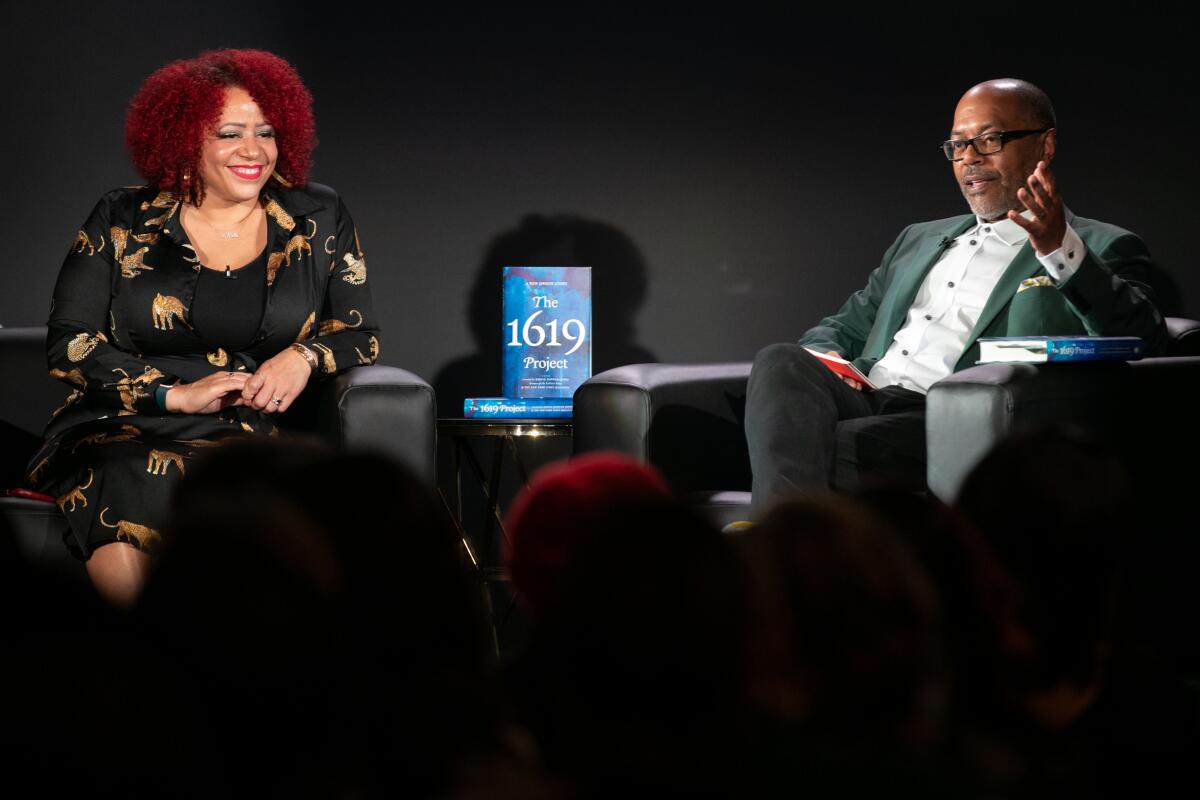
And she did. “Five years later,” she quipped, those two things would lead to “The 1619 Project.”
But how did it come to fruition, Merida asked; how did she convince a legacy institution like the New York Times to invest time and resources in her sweeping, ambitious pitch?
“Ancestral intervention,” said Hannah-Jones, a self-described “agnostic,” who added that she was only half-joking.
“It’s been so strange on this project because I’ve just felt something, like some act of intervention,” she explained. “Because there’s no reason this project should exist as it, does knowing everything that we know about the industry” — one that has historically centered, catered to and been dominated by white people.
Howard University students and faculty welcome Nikole Hannah-Jones, believing she will benefit both the university and the journalism she fights for.
The project’s power, she continued, lies in its refusal to do that: The editors and writers weren’t worried about whether it would make “the typical New York Times reader” uncomfortable. Nor was their intention to merely study history; instead, they were exploring how the past is still shaping America.
And on a “petty” level, as she described it, the project was a response to a question Black people are often asked: “Slavery was a long time ago — why don’t you get over it?”
“Black people are constantly having to answer that question in a country that can’t get over slavery,” she said.
Ambitious as she knew the project was, Hannah-Jones had no idea it would become such a broad cultural force. “You can produce something powerful and people still won’t care.”
But she couldn’t have been more wrong.
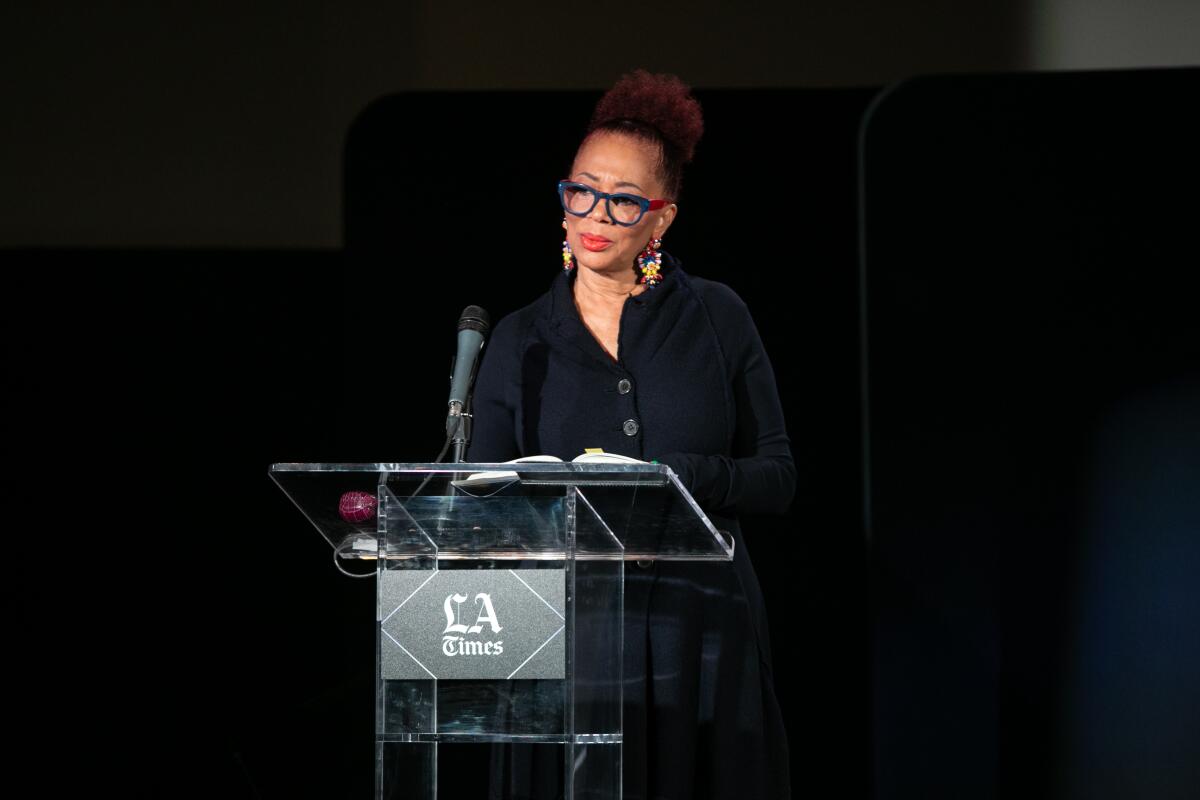
The project sparked criticism and debates among some historians after it was published. The following year, Hannah-Jones was awarded the Pulitzer Prize in Commentary for her introductory essay. Republican lawmakers have pushed to ban “The 1619 Project” from classrooms and even former President Donald Trump weighed in, prompting an alternative curriculum proposal by conservative leaders.
This summer, following an extended public fight over tenure, Hannah-Jones announced she would not teach at the University of North Carolina at Chapel Hill, her alma mater, and instead accepted a tenured position at Howard University. (“Howard was one of those rare cases where racism just worked in my favor,” she said, laughing.)
Merida asked her: “What’s been your self-care through this whole process?”
Hannah-Jones paused and smiled. “I don’t have one,” she said.
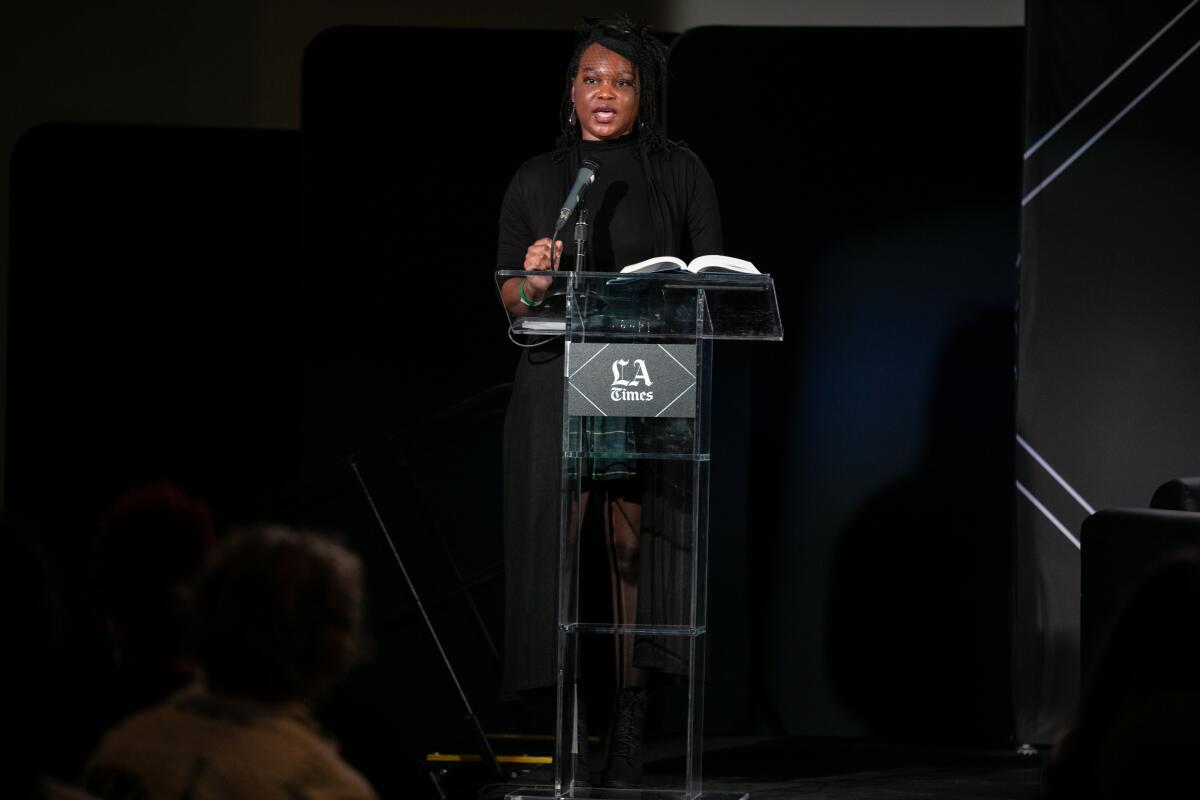
“I don’t really know what that looks like because I feel like I’ve been brought to this moment and I can’t rest right now,” she continued. “Everything I’ve been working towards my entire career has been to be in this moment … and I think a lot about my direct ancestors, like my grandmother who was born on a cotton plantation, who had a fourth-grade education, who had, I assume, all the dreams, hopes, ambitions that I had but was born into a world where she could realize none of them.
“I have to work in service of the debt because I owe a great debt to my own direct ancestors and to our collective ancestors,” she said, before finally conceding: “My self-care is bourbon and work.”
At the end of the event, the audience gave Hannah-Jones a standing ovation.
Nikole Hannah-Jones talks about power, privilege and ‘The 1619 Project’ in advance of her L.A. Times Book Club visit.
Jacques Bordeaux was among them.
The 68-year-old retired Los Angeles teacher, who was known as “Mr. Black history” in classrooms, considers “The 1619 Project” a companion piece to Michelle Alexander’s “The New Jim Crow” and Isabel Wilkerson’s “Caste” and “The Warmth of Other Suns.”
“The fact that they’ve all been written by Black women just proves the point that excluded voices, when heard, have a very powerful story to tell,” said Bordeaux. “And I think that’s what she did tonight: Lay out why the scholarship is needed, how much antipathy there is to the truth, and why as a country we ain’t never going to get where we want to go until we face this truth about ourselves.”
The next Los Angeles Times Book Club event will take place Dec. 9, when bestselling author Ann Patchett will discuss “These Precious Days” with Times columnist Steve Lopez. Sign up for the virtual event, which will be livestreamed on Twitter, YouTube and Facebook at 6 p.m. PT.
More to Read
Sign up for our Book Club newsletter
Get the latest news, events and more from the Los Angeles Times Book Club, and help us get L.A. reading and talking.
You may occasionally receive promotional content from the Los Angeles Times.
